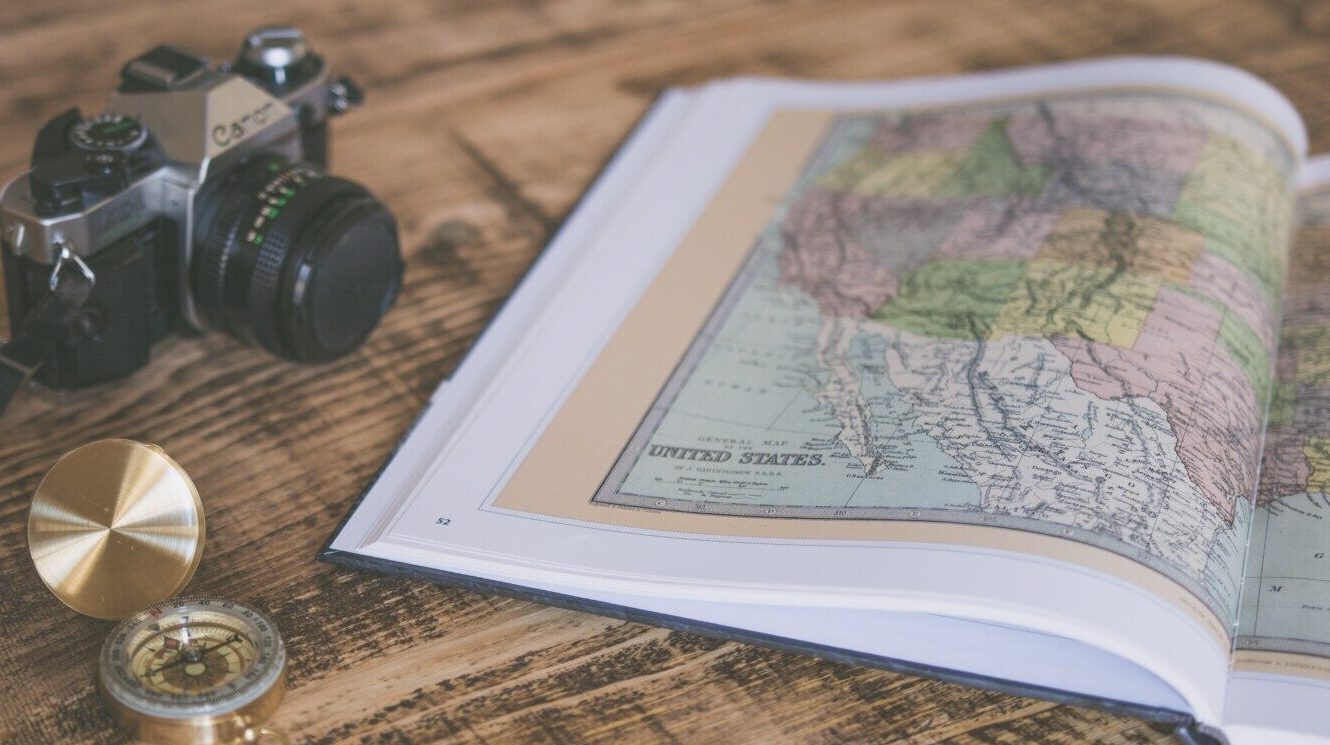Are guidebooks outdated?
For a long time, guidebooks were absolutely essential for any traveller. If you were off on holiday, especially to a place you didn’t know, a guidebook was invaluable – they’re full of information, phrases, history, and anything else you could require. But now, much of this information is available online and easy to access, and it feels like younger travellers gravitate towards their phones rather than a book. So, for the contemporary traveller, are guidebooks outdated, or do they still have their uses?
Travel guides have existed since humans began exploring the world, with the oldest known example dating back to 1442. Explorers compiled guides, with information to help pilgrims navigate their travels. The first guidebooks as we know them were published in the 1830s, with a burgeoning market for long-distance travel – the famous Murray’s Handbooks for Travellers covered tourist destinations in Europe, Asia, and northern Africa, introducing the idea of ‘sights’. Famed writers known for their travel guides included George Bradshaw and Alfred Wainwright.
After a peak in 2005, guidebook sales declined by an estimated 40% in the UK and US between 2005 and 2012
In a contemporary context, three key guidebook publishers began in the 1970s – Bradt Guides, Moon, and Lonely Planet. There was a boom in guidebook sales in the 1990s, as backpackers headed off on their travels – these were essential tools in this immediate period before the age of the internet. But, after a peak in 2005, guidebook sales declined by an estimated 40% in the UK and the US between 2005 and 2012. A number of independent guidebook publishers sold up, seeing the writing on the wall, although there has been an uptick in sales since Covid-19 hit and travel reopened.
Personally, I’m a fan of a physical book. I love the feeling of having it in your hands, being able to thumb through it and discover new information – with a physical book, you can mark things with a pen, bend corners, use sticky notes, and have that information on hand anywhere you have the guide. It makes the experience more personal, somehow, and the guidebook becomes a souvenir of sorts when your journey is through.
A good guidebook is curated by experts: people who know the city or country they’re describing, and so you can trust the advice they have to offer
And there’s a lot of information available – guidebooks provide language, history, food, and culture, all in one place. A good guidebook is curated by experts: people who know the city or country they’re describing, and so you can trust the advice they have to offer. There’s a level of convenience knowing you’ve got most of the relevant information on hand, no matter your budget or travel time, while having useful paper maps is also invaluable.
However, there are clear issues with the guidebook format. Typically, they include prices and other information which will be out of date by the time it is published, and there have been cases of places raising prices because they’re in the guidebook. They’re heavy to carry, and they take up space in your bag – sure, it’s hardly lugging a boulder around, but if you’ve only got a backpack for a weekend away, a travel guide may not be a priority for bag space. Similarly, if you’re going to multiple cities or countries, carrying several guides may not be ideal. And it’s worth noting, of course, that you have to pay for a guidebook – the content is generally better, but it costs.
Essentially every company offers digital versions of their books, which are often cheaper and mitigate the weight issue
It’s clear from my research that there is still a market for guidebooks1 – it’s simply a matter of knowing what to use them for and your own personal preferences. If you’re unsure about whether to opt for a guidebook or if you prefer digital guides, there’s a potential middle ground that might suit you. Essentially every company offers digital versions of their books, which are often cheaper and mitigate the weight issue. In some cases, you can even buy individual chapters in PDF format, so if you know your travels will be limited to a certain part of a country, you could just purchase the relevant information without needing the entire book.
This is, I think, the ideal place for guidebooks now – it’s not an either/or situation. Guidebooks and online research can and should complement each other – both formats have their strengths and weaknesses, and putting them together can only enhance your travelling experience. I don’t know if it would necessarily be accurate to describe guidebooks as outdated – rather, they’re a smaller but no less useful part of experiencing travel.

Comments